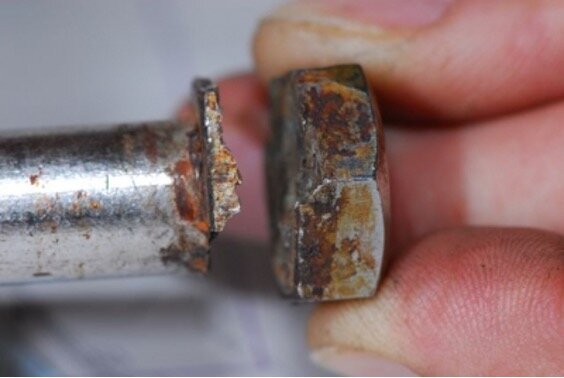
For bolted connections in outdoor environments, preventing corrosion is crucial to maintaining the integrity and safety of the assembly. This is especially true for fasteners used in solar installations, as these systems are primarily used outdoors and often exposed to the harshest weather conditions. In this article, we will discuss how to minimize corrosion in bolted connections and the key factors to consider when selecting materials and coatings for fasteners.
The Impact of Corrosion on Joints
Corrosion can lead to the deterioration of joints and bolted connections. Even small amounts of corrosion that cause material loss can significantly impact the preload on fasteners, leading to loss of joint integrity and potential failure. This makes corrosion resistance a top priority in ensuring the longevity and reliability of bolted connections, particularly in solar installations, where exposure to the elements is constant.
Choosing Corrosion-Resistant Fasteners
When selecting fasteners for use in outdoor environments, such as solar installations, it’s essential to choose corrosion-resistant materials. The key factors influencing the choice of a corrosion-resistant fastener include:
-
Tensile Strength: The fastener must be able to handle the forces and stress applied to the joint, especially under extreme weather conditions.
-
Fatigue Strength: The ability of the fastener to resist failure due to repeated stress cycles is vital for outdoor applications where mechanical forces can vary over time.
-
Position on the Galvanic Series: The fastener material must be compatible with the materials being joined. The galvanic series scale helps identify which materials are more prone to corrosion when paired with others.
Choosing Corrosion-Resistant Protective Coatings
In addition to selecting corrosion-resistant materials, using the right protective coatings on fasteners is essential. Factors to consider when choosing a coating include:
-
Level of Corrosion Resistance: The coating should offer an adequate level of protection for the environment, whether it’s marine, desert, or high-humidity conditions.
-
Temperature Limitations: Some coatings may not be suitable for high-temperature environments and may degrade or fail at elevated temperatures.
-
Base Metal Embrittlement: Certain coatings can make the base metal brittle, reducing the fastener’s strength and performance.
-
Impact on Fatigue Life: Coatings that affect the metal’s properties may reduce its ability to withstand repetitive stress, impacting the long-term performance of the fastener.
-
Locking Torque: Some coatings can influence the locking torque of a fastener, making it harder or easier to tighten the bolt. This is crucial for ensuring the proper preload in the connection.
-
Coating Compatibility: Ensure that the coating is compatible with the materials adjacent to the fastener to avoid adverse chemical reactions that could accelerate corrosion.
-
Dimensional Changes: Coatings should not cause significant dimensional changes, which could affect the fit and function of the bolted connection.
-
Adhesion Characteristics: A high-quality coating will adhere well to the fastener and provide consistent protection without flaking or peeling off over time.
Protecting from Environmental Exposure
In addition to selecting the right fasteners and coatings, it’s essential to protect the fasteners from ongoing environmental exposure. Regular inspections and maintenance can help identify and address any early signs of corrosion before they lead to failure. Additionally, using weather-resistant and UV-stable coatings can further enhance the protection of the fasteners and ensure their longevity in harsh environments.
Conclusion
Minimizing corrosion in bolted connections is essential to maintaining the integrity and performance of systems like solar installations. By choosing corrosion-resistant materials and coatings based on key factors such as tensile strength, fatigue strength, and environmental compatibility, you can help protect your fasteners from the detrimental effects of corrosion. Regular maintenance and proper selection of fasteners will ensure the long-term durability and safety of bolted connections in outdoor applications.

